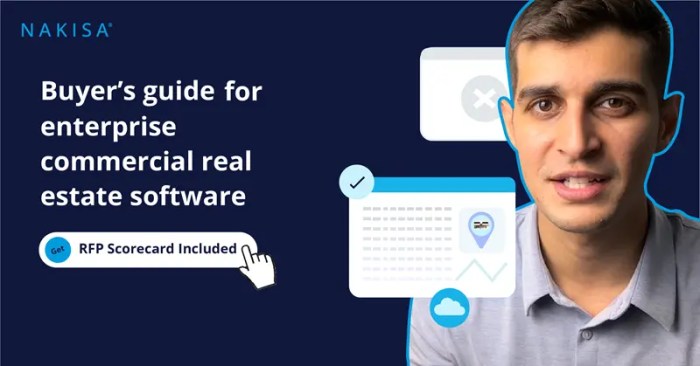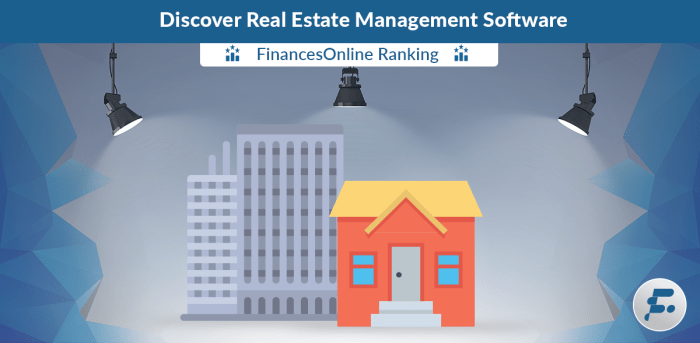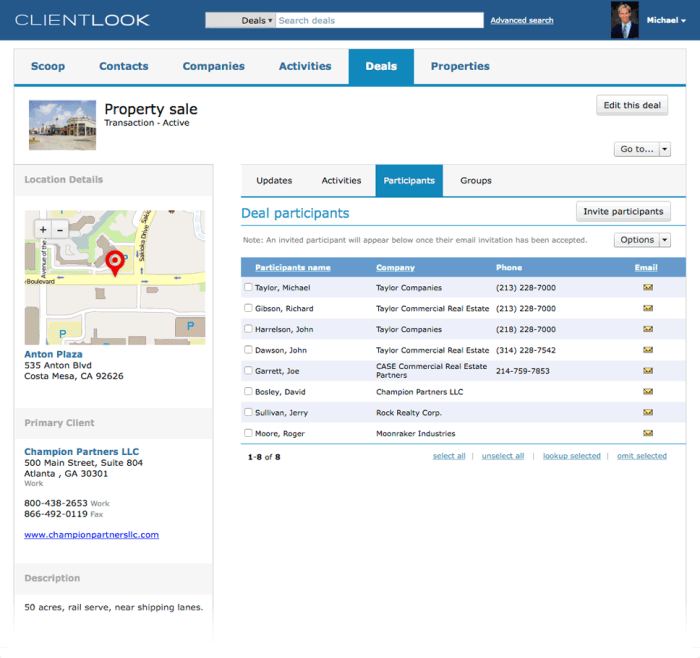The commercial real estate (CRE) industry is a dynamic and competitive landscape. To thrive, brokers, agents, and property managers need efficient tools to manage leads, track deals, and nurture relationships. This is where Commercial Real Estate CRM software steps in, offering a powerful solution to streamline operations and boost productivity. This detailed guide explores the features, benefits, and considerations involved in choosing the right CRE CRM for your business needs.
Understanding the Importance of a CRE CRM
A Commercial Real Estate CRM (Customer Relationship Management) system is more than just a contact list; it’s a centralized hub for all your client and property information. It empowers you to manage the entire lifecycle of a deal, from initial lead generation to closing and beyond. In today’s fast-paced market, a robust CRE CRM is essential for:
- Improved Lead Management: Efficiently capture, qualify, and nurture leads, ensuring no opportunity slips through the cracks. Features like lead scoring and automated email sequences help prioritize high-potential prospects.
- Enhanced Deal Tracking: Maintain a clear overview of all active deals, including crucial details like property information, contact information, deadlines, and communication history. This minimizes the risk of missed deadlines and improves closing rates.
- Streamlined Communication: Centralize all communication with clients, partners, and vendors in one place. This ensures consistency, avoids confusion, and improves responsiveness.
- Data-Driven Decision Making: Leverage built-in reporting and analytics to gain valuable insights into your business performance. Track key metrics such as conversion rates, deal closure times, and marketing ROI to optimize your strategies.
- Increased Team Collaboration: Facilitate seamless collaboration among team members by providing a shared platform for accessing and updating information. This improves communication and reduces errors.
- Better Client Relationship Management: Nurture client relationships effectively by tracking interactions, preferences, and deal history. Personalized communication and proactive follow-up strengthen client loyalty and referrals.
Key Features of Top-Tier Commercial Real Estate CRM Software
While specific features vary between different CRE CRM platforms, several core functionalities are common across the best solutions:
Contact Management
This is the foundation of any CRM. A robust contact management system allows you to store detailed information about clients, prospects, and other stakeholders, including contact details, communication history, and property preferences. Advanced systems offer features like custom fields for storing specific information relevant to your business.
Property Management
Effectively manage property listings, including details such as address, photos, floor plans, and financial information. Some CRMs integrate with property listing platforms, automating data synchronization and streamlining the listing process.
Deal Management
Track the progress of each deal through its various stages, from initial contact to closing. This often involves customizable workflows, automated reminders, and progress tracking tools to ensure deals stay on schedule.

Source: nakisa.com
Marketing Automation
Automate repetitive marketing tasks, such as email campaigns, lead nurturing sequences, and social media updates. This frees up your time to focus on building relationships and closing deals.
Reporting and Analytics
Gain valuable insights into your business performance through customizable reports and dashboards. Track key metrics, identify trends, and make data-driven decisions to optimize your strategies.
Integration Capabilities
Seamlessly integrate with other essential business tools, such as email marketing platforms, accounting software, and property listing sites. This eliminates data silos and improves efficiency.
Mobile Accessibility, Commercial real estate crm software
Access your CRM from anywhere, anytime, through a mobile app. This allows you to stay connected with clients and manage deals even when you’re on the go.
Choosing the Right Commercial Real Estate CRM: Factors to Consider
Selecting the right CRE CRM involves careful consideration of several factors:
- Your Business Size and Needs: A small brokerage may require a simpler system than a large firm with multiple teams and complex workflows.
- Budget: CRM solutions vary in price, ranging from affordable monthly subscriptions to enterprise-level solutions with higher costs.
- Features and Functionality: Prioritize features that align with your specific needs and workflows. Consider the importance of property management, deal tracking, marketing automation, and reporting capabilities.
- Ease of Use and User Interface: Choose a system that is intuitive and easy to navigate for all users. A user-friendly interface improves adoption and reduces training time.
- Integration Capabilities: Ensure the CRM integrates with your existing business tools to avoid data silos and improve efficiency.
- Customer Support: Reliable customer support is essential to address any technical issues or questions that may arise.
- Scalability: Choose a system that can grow with your business, accommodating future expansion and increased user needs.
Popular Commercial Real Estate CRM Software Options
Several reputable CRM providers cater specifically to the CRE industry. Researching and comparing different options is crucial to finding the best fit for your business. Some popular choices include (but are not limited to):
- [Insert reputable CRE CRM software A here with a brief description and link to their website]
- [Insert reputable CRE CRM software B here with a brief description and link to their website]
- [Insert reputable CRE CRM software C here with a brief description and link to their website]
Frequently Asked Questions (FAQs)
- Q: What is the average cost of CRE CRM software? A: Costs vary greatly depending on features, scalability, and the vendor. Expect to pay anywhere from a few hundred dollars per month to several thousand for enterprise-level solutions.
- Q: How long does it take to implement a CRE CRM? A: Implementation time depends on the complexity of the system and the size of your business. It can range from a few weeks to several months.
- Q: Can a CRE CRM integrate with my existing software? A: Many CRE CRMs offer integration with popular business tools like email marketing platforms, accounting software, and property listing sites. Check the specific integration capabilities of the software you are considering.
- Q: What are the benefits of using a cloud-based CRE CRM? A: Cloud-based CRMs offer accessibility from anywhere with an internet connection, automatic updates, and reduced IT infrastructure costs.
- Q: How can I choose the best CRE CRM for my business? A: Consider your budget, business size, required features, ease of use, and integration capabilities. Try out free trials or demos to assess the usability and suitability of different platforms.
Conclusion
Investing in the right Commercial Real Estate CRM software is a strategic move that can significantly improve your business efficiency, productivity, and profitability. By carefully considering your needs and exploring the available options, you can find a solution that empowers your team to manage deals more effectively, nurture client relationships, and ultimately, achieve greater success in the competitive CRE market.
Call to Action
Ready to take your commercial real estate business to the next level? Explore the leading CRE CRM solutions today and request a demo to see how they can benefit your organization. Don’t wait – start maximizing your potential now!
FAQ Corner
What are the typical costs associated with commercial real estate CRM software?
Costs vary greatly depending on the features, scalability, and vendor. Expect monthly subscription fees ranging from a few hundred to several thousand dollars, influenced by the number of users and functionalities needed.

Source: financesonline.com
How long does it take to implement a commercial real estate CRM system?
Implementation time depends on the complexity of the system and the size of the organization. It can range from a few weeks for smaller setups to several months for larger, more complex integrations.
Can commercial real estate CRM software integrate with other tools I already use?
Many CRM systems offer integrations with other popular business tools, such as email marketing platforms, accounting software, and property management systems. Check with specific vendors for compatibility details.
What are the key performance indicators (KPIs) to track when using a commercial real estate CRM?

Source: clientlook.com
Key KPIs include lead conversion rates, deal closure times, client satisfaction scores, and revenue generated per deal. Monitoring these metrics helps measure the effectiveness of the CRM and identify areas for improvement.
